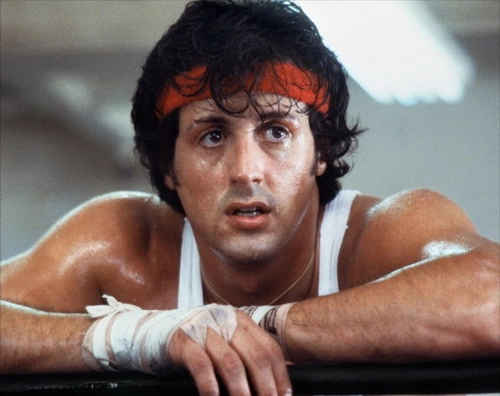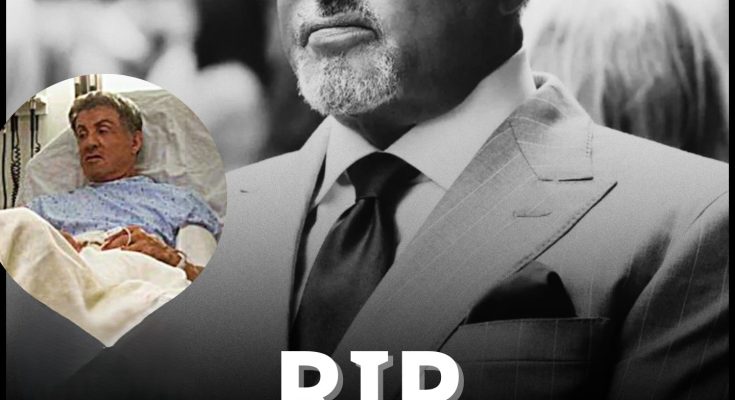Sylvester Stallone’s name is once again on every screen — but this time, it’s not for a comeback.
Murmurs ripple through the internet… “He fought every battle — except this last one.”
Yet in truth, Stallone’s fight was never about winning or losing.
It was about surviving — and teaching the world what it means to rise, again and again, no matter how hard you fall.
The Last Round: A Farewell Without Goodbye
For over five decades, Sylvester Stallone has been the embodiment of endurance — both on screen and off. The man who turned a $100 script into Rocky, a cultural cornerstone, didn’t just play a fighter. He became the spirit of fighting itself.
Now, as the lights dim and whispers of farewell echo through the digital age, Hollywood pauses — not in mourning, but in awe.
Because Stallone’s story has never been about endings. It’s about the kind of immortality that only comes from living so fiercely that the world can’t imagine life without you.


From the Shadows of Rejection to the Summit of Glory
Born in 1946, Sylvester Gardenzio Stallone entered the world amid chaos — a difficult birth that left him with partial facial paralysis, the same signature snarl that would one day define his cinematic face.
Hollywood didn’t see a leading man. It saw an underdog.
And that’s exactly what Stallone turned into his greatest weapon.
In 1975, broke and nearly homeless, Stallone wrote Rocky in three and a half days. Every studio wanted the story — but not him.
They offered money, fame, deals. He refused them all unless he could play the lead.
He risked everything — and won everything that mattered.
When Rocky premiered in 1976, it wasn’t just a movie. It was a miracle. A film made from grit, hope, and the stubborn belief that sometimes, the impossible just needs a little faith and a few bruises.
The Academy Award for Best Picture followed.
So did the legend.
The Man Who Never Stopped Swinging
If Rocky was heart, Rambo was fire.
John Rambo — the broken soldier who fought a different kind of war — showed the world Stallone’s range as more than a hero; he was pain personified, a man scarred by the cost of survival.
Through the ’80s, Stallone redefined masculinity in cinema: raw, imperfect, relentless. His characters bled, cried, and roared — not out of invincibility, but out of the refusal to surrender.
And when the world changed — when the muscles and gunpowder of Hollywood began to fade — Stallone didn’t vanish. He adapted.
He grew older on screen with the same courage he showed in the ring.
In Creed, as Rocky mentored a new generation, audiences saw the man behind the myth: aging, humble, still punching, still teaching.
Still refusing to stay down.
The Legacy of Pain and Purpose
Behind the lights, Stallone’s life was not without tragedy. He lost his son, Sage, in 2012 — a wound that never healed. Yet even then, he turned grief into grace, channeling his sorrow into his art, using film as a bridge between loss and legacy.
In interviews, he often said that Rocky Balboa (2006) was his real goodbye — a love letter to the fighter inside every person who has ever been told “you can’t.”
“It’s not about how hard you hit,” Rocky says.
“It’s about how hard you can get hit and keep moving forward.”
That line — written by Stallone, lived by Stallone — became a mantra for millions. Soldiers quoted it in letters home. Coaches printed it on locker room walls. Fans tattooed it on their skin.
He didn’t just write a film. He wrote a philosophy.

The Silent Fade of a Giant
As he moved through his later years, Stallone spoke less of fame and more of family, faith, and forgiveness.
His social media became filled not with red carpets, but with reflections — memories of the early days, old friends, and the fans who carried him through.
Recently, he shared a quiet video walking through the empty gym where he once trained for Rocky.
He said softly: “It’s strange. You come back here, and you realize — the fight was never in the ring.”
The clip went viral overnight. Millions commented the same words: “Thank you, Champ.”
No announcement followed. No new projects. Just silence — and a feeling that maybe, Stallone had finally gone the distance.
More Than a Man, a Movement
Few actors have transcended their characters the way Stallone has. He didn’t just play heroes — he created blueprints for survival.
From the factory worker who believed he could go fifteen rounds with the world, to the soldier who fought to be heard in a land that forgot him, Stallone turned fiction into fuel for the human spirit.
His legacy isn’t measured in box office numbers or awards, but in the people who stood up after watching his movies and whispered: “If he can, maybe I can too.”
In a time when Hollywood often feels hollow, Stallone reminded audiences that greatness isn’t found in fame — it’s forged in failure, heartbreak, and the quiet decision to keep going.

The Torch Burns On
Now, a new generation of filmmakers, fighters, and dreamers carry his flame.
Michael B. Jordan continues the Creed legacy.
Writers still quote Rocky’s lines when describing courage.
And every underdog story, from TikTok shorts to global blockbusters, owes a debt to the man who turned sweat into poetry.
Even Musk, Zuckerberg, and modern icons have cited Stallone as an influence — not for his muscles, but his mindset.
The belief that resilience is the real superpower.
When the Lights Go Down
As the curtain slowly falls on a life that reshaped cinema, there’s a line from Rocky Balboa that now feels prophetic:
“The world ain’t all sunshine and rainbows.
It will beat you to your knees and keep you there permanently if you let it.
But it ain’t about how hard you hit. It’s about




